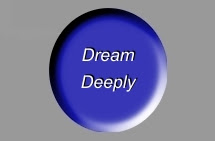
Alcohol administration increases the concentration of allopregnanolone (AP) in the brain.. AP acts as a neuroactive steroid modulating the inhibitory effects of the neurotransmitter GABA and induces some behavioral effects of alcohol, including relaxation and sleep.
.
Alcohol consumption can induce sleep disorders by disrupting the sequence and duration of sleep states and by altering total sleep time as well as the time required to fall asleep (i.e., sleep latency).
.
http://www.sleephotline.com/Sleep/categories/Sleep-Management-Tips.html
.
People often use alcohol to help induce sleep, as a nightcap. However, it is a poor choice. Alcohol is associated with sleep disruption and creates a sense of nonrefreshed sleep in the morning.
http://www.emedicinehealth.com/insomnia/page2_em.htm
.
.
What are the effects of alcohol on sleep?
.Response from Karl Doghramji, MD Professor of Psychiatry, Jefferson Medical College, Philadelphia, Pennsylvania; Director, Sleep Disorders Center, Thomas Jefferson University, Philadelphia, Pennsylvania
.
Alcohol is used extensively as a sleep aid in the general population. In a recent survey,[1] 28% of insomniacs indicated that they had used alcohol to help them fall asleep. Occasional insomniacs used alcohol for an average of 3.6 nights/month, while chronic insomniacs used alcohol for an average of 6.8 nights/month.
.
An equal number of occasional insomniacs and chronic insomniacs (67%) described alcohol as an effective or very effective method to induce sleep.When ingested by normal individuals, alcohol leads to a more rapid induction of sleep. It also increases non-REM sleep and reduces REM sleep during the first portion of the night.
.
Alcohol is metabolized rapidly and blood concentrations are negligible by the middle of the night for most individuals who have a few drinks prior to bedtime, often resulting in withdrawal symptoms thereafter. These may include shallow sleep and multiple awakenings, REM rebound associated with nightmares or vivid dreams, sweating, and general activation.
.
Therefore, although alcohol may be effective in sleep induction, it impairs sleep during the second half of the night and can lead to a reduction in overall sleep time. As a result, it can also be associated with daytime somnolence. It is of interest that alcohol's negative effects on sleep are even observed when it is ingested in the late afternoon.




